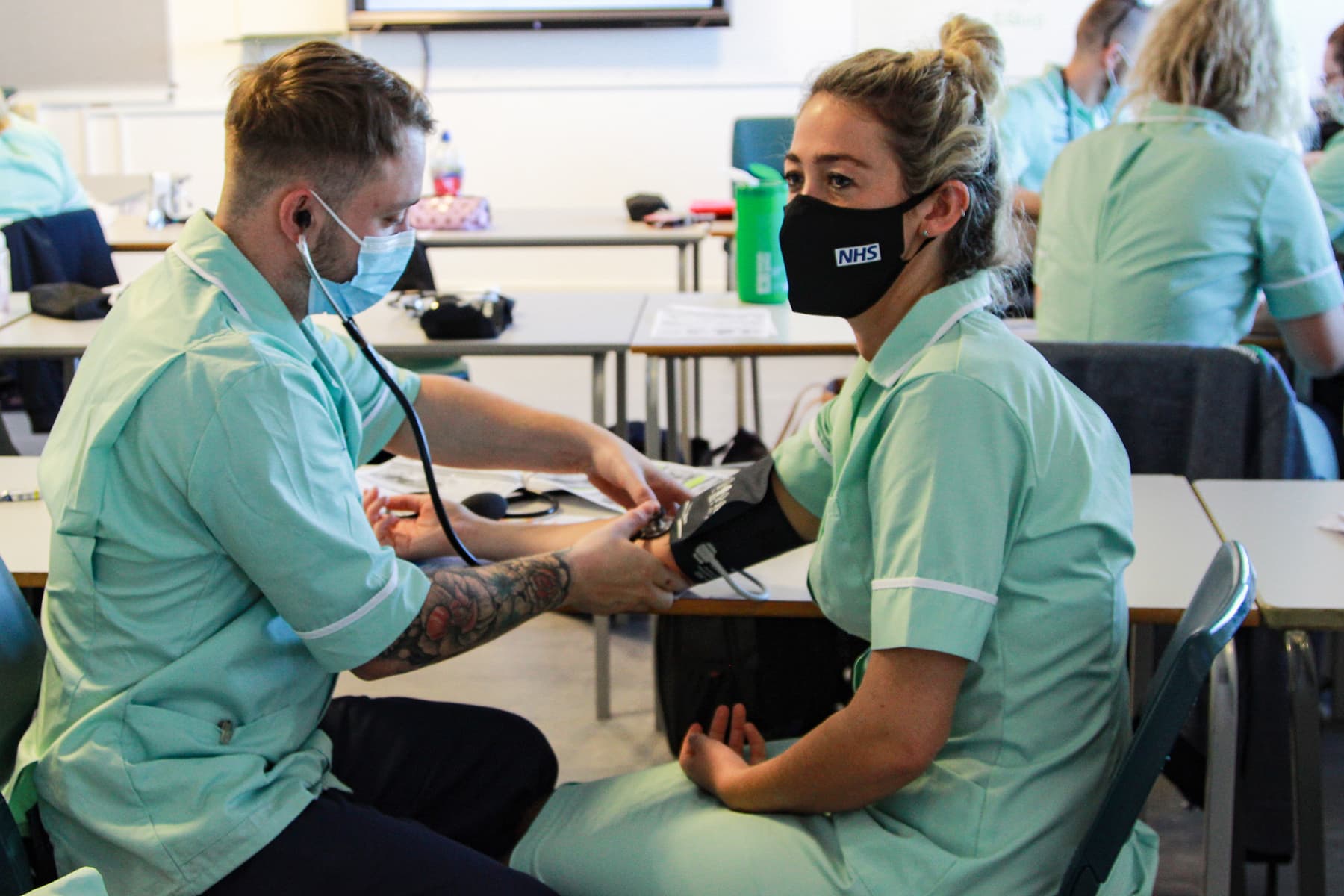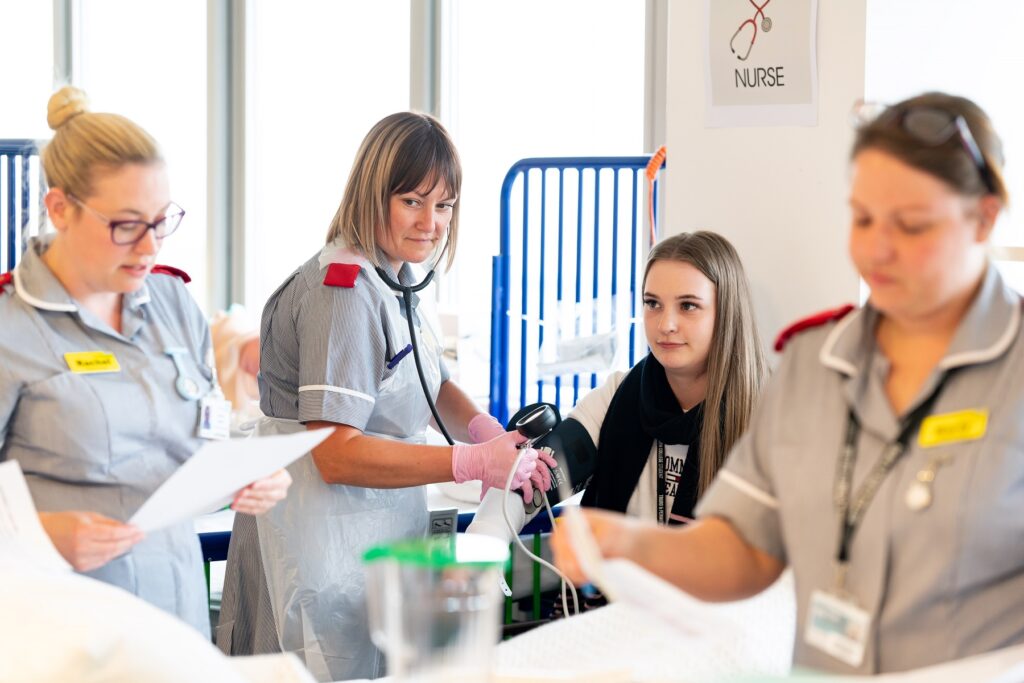From Monday, September 22, all students must ensure they have a valid, working pass for the bus service they are using. Student ID cards will no longer be accepted on board services. Full instructions can be found on our Transport page.
WHY CHOOSE THIS COURSE?
This apprenticeship standard is designed to bridge the gap between healthcare assistants and registered nurses, providing a vital role in the health and care workforce. This apprenticeship offers a progression route into graduate-level nursing, enabling registered nurses to focus on more complex clinical duties. Nursing Associates provide care for individuals of all ages and backgrounds, addressing mental, physical, cognitive, and behavioural needs. They work in diverse settings, including homes, communities, hospitals, and various healthcare environments. Their role is crucial in promoting health, protecting health, and preventing illness by empowering individuals and communities to make informed health decisions.
Apply for this course
Start date: 12/01/2026
TOP COURSE HIGHLIGHTS
Industry-standard facilities
Highly experienced tutors
Develop skills in line with industry needs
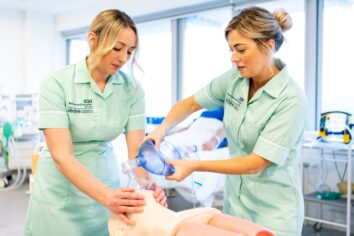
Learn from sector experts
Gain invaluable insights and hands-on experience from industry expert tutors who bring real-world knowledge and expertise to the classroom. Their guidance will help you develop the skills and confidence needed to excel in your chosen field.
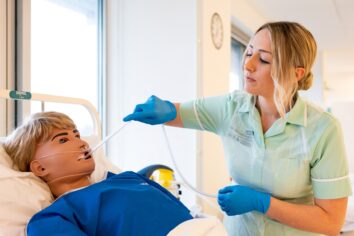
Develop work-related skills
Enhance your practical abilities and gain hands-on experience that directly translates to the workplace. This apprenticeship course focuses on real-world applications, ensuring you are well-prepared to meet the demands of your chosen career.
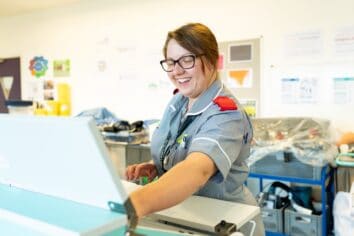
Enjoy professional surroundings
Immerse yourself in a dynamic and supportive environment that mirrors the professional world. This apprenticeship course provides access to state-of-the-art facilities and resources, helping you to thrive and feel confident in your career journey.
WHAT WILL I LEARN?
Knowledge This apprenticeship enables learners to gain a comprehensive understanding of professional standards, including the Code of Practice for nurses, midwives, and nursing associates. They learn about the principles of health promotion, protection, and illness prevention, as well as the importance of empowering individuals and communities to make informed health decisions. The curriculum covers mental, physical, cognitive, and behavioural health needs, ensuring Nursing Associates are equipped to provide holistic care. Additionally, they study the integration of health and social care services, innovative care models, and evolving technologies to adapt to dynamic healthcare environments.
Skills This apprenticeship enables apprentices to develop a flexible and portable skill set to deliver high-quality, compassionate care across various settings, from homes and communities to hospitals. They learn to work independently and collaboratively within multidisciplinary teams, contributing to comprehensive care delivery. Key skills include assessing, planning, delivering, and evaluating care, as well as effective communication with service users, families, carers, and healthcare professionals. Specific skills learned include administering medication, wound care, monitoring vital signs, and supporting patients with daily activities such as bathing and feeding. Nursing Associates also acquire the ability to manage their own care and support others in doing so, ensuring person-centred care that respects individual diversity, beliefs, and preferences.
Behaviours Apprentices are expected to treat people with dignity, respecting individual diversity, beliefs, culture, needs, values, privacy, and preferences. They should demonstrate respect and empathy for colleagues and service users, and have the courage to challenge areas of concern. Additionally, Nursing Associates are required to show leadership, adaptability, reliability, consistency, discretion, resilience, and self-awareness.
Typical Duties that an Apprentice will carry out in the workplace:
- Performing and recording clinical observations such as blood pressure, temperature, respirations, and pulse.
- Undertaking clinical tasks including venepuncture (drawing blood) and ECGs (electrocardiograms).
- Administering medication and providing wound care.
- Supporting individuals and their families and carers when faced with unwelcome news and life-changing diagnoses.
WHERE WILL IT TAKE ME?
Completing the Nursing Associate Apprenticeship opens up several career pathways in healthcare. As a qualified Nursing Associate, you can progress to become a registered nurse by undertaking a shortened nursing degree programme or a degree-level Nurse Apprenticeship. Specifically, you have the opportunity to advance to the Level 6 Registered Nurse Apprenticeship with the University Centre Truro & Penwith, in partnership with the University of Greenwich.
Assessment Arrangements
The End-Point Assessment (EPA) is a crucial component of apprenticeship standards, designed to evaluate an apprentice’s knowledge, skills, and behaviours (KSBs) acquired during their training. The EPA typically includes a combination of practical assessments, professional discussions, and portfolio reviews, ensuring apprentices are fully prepared for their chosen career. This assessment is carried out independently by an End-Point Assessment Organisation (EPAO), ensuring impartiality and fairness. Employers play a key role in confirming readiness for the EPA, supporting apprentices throughout the process to achieve successful outcomes.
EPA (End Point Assessment) methods
- This apprenticeship has a fully integrated EPA.
- The EPA starts with the examination board and finishes when the AEI makes the required declarations to the NMC. The apprentice is not required to carry out any additional assessments.
- This process typically takes place within 1 month of the training plan being completed by the apprentice.
Entry Requirements
From the start of your apprenticeship, you will need to be employed full-time (30 hours or more per week) in an appropriate healthcare setting where you can train as a Nursing Associate.
If you are not already employed in a health or social care setting, you should contact NHS Trusts and other healthcare organisations in your area to check if they are recruiting nursing associate apprentices.
You will need to hold a minimum of Level 2 mathematics and English qualifications on entry.
These can be GCSEs (or acceptable international equivalents) or Functional Skills.
You will also need a Level 3 qualification or Under some circumstances, we will accept two years of employment in a relevant health or social care setting.
Examples of eligible Level 3 qualifications include:
- A Level
- BTEC National Diploma (pass) or Certificate (merit)
- Advanced or higher apprenticeship in health and social care
- NVQ (subject-related)
Additional Information
The course fees are shared between the government and employers, further costs may include (but are not limited to):
- Resources: you may need to purchase books for your studies, as well as specific computer software (estimate, £150 per year)
- Memberships: applying for membership of a professional body at the end of the course may incur further costs.
Meet the staff, tour the campus and find out about life as a student at one of the best colleges in the country.
